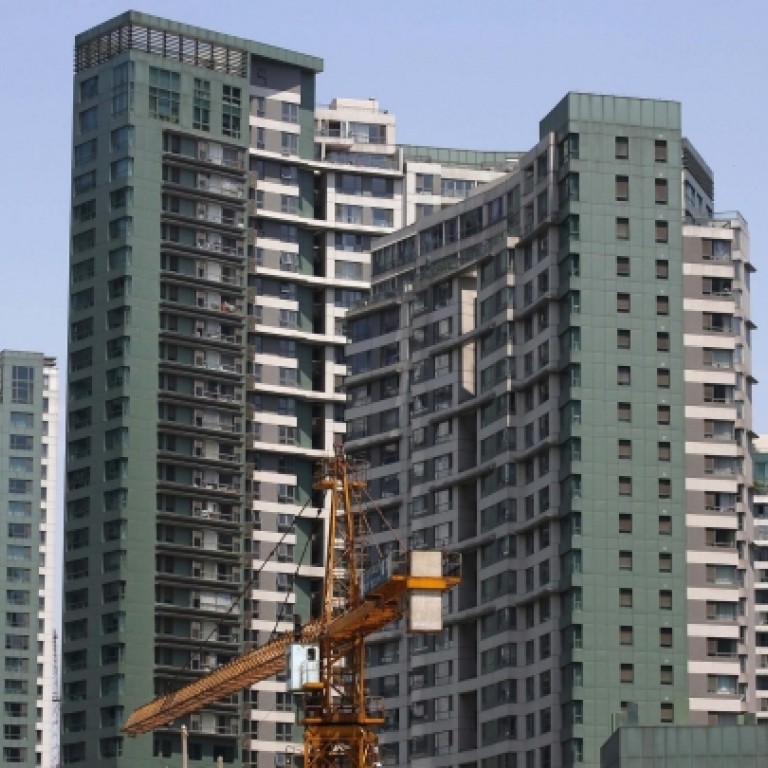
Beijing puts prime land near third ring road up for sale again at higher price
Mainland policymakers face dilemma over curbing housing inflation, meeting demand
Authorities have reopened the sale of a plot of land that was scrapped last month over concerns the price could reach a record, but their decision to set an even higher starting bid highlights a tough dilemma facing mainland policymakers fearful of a property bubble.

"Actually policymakers are worried about the current situation in the property market as there are not so effective measures in the short term," said Zou Xiaoyun, deputy chief engineer at the China Land Surveying and Planning Institute, a research unit under the Ministry of Land in Beijing.
"The government is the only one in the market to control the land supply. The land supply model itself is unbalanced," he said.
The central government wants more people to move to the cities, but it is concerned over the possibility of a property bubble and the debt risk that would entail. It is also concerned that high prices will affect social stability as more mainland residents find themselves priced out of the property market.
Home prices in May rose 6 per cent, the fifth consecutive increase and the fastest annual pace since January 2011 when Reuters started to calculate the nationwide data. Beijing, Shanghai, Guangzhou and Shenzhen were among cities leading the price rises.
Local governments, meanwhile, have stronger incentives to push up prices as revenues from land sales are a key source of income, even though they have been directed by the central government to increase land supply and cap home prices to keep a lid on social discontent.
A report from the National Audit Office earlier last month showed 21 of 36 localities, which had been audited, had promised to pay off 55 per cent of their debts using land sales by the end of last year.
The Beijing plot, located near the southern third ring road, is surrounded by old village houses, a Reuters visit to the site in May showed. The area is not served by the capital's underground rail network, but has several bus routes.
However, it is considered one of the best parcels in Beijing available for residential construction as there is a shortage of land in areas within the third ring road, the closest suburban area to the downtown area.
The starting bid price of the plot has been raised to 1.359 billion yuan (HK$1.7 billion) from a previous 1.31 billion yuan. A bidder had offered 1.352 billion yuan before the auction was suspended in May, official data showed.
The land-price premium - an indicator of developers' appetite for land - stood at between 100 and 200 per cent in the capital last month, while a commercial-use plot of land in Shanghai sold last week for a record price of 4.7 billion yuan.
City authorities in Beijing face difficulties in increasing land supply as it takes time to complete acquisitions, while rising land prices are in part due to larger compensation to residents, said a senior executive of a mid-sized listed developer in Beijing.
The capital city sold only 32 per cent of the land it had originally planned to release for private sector residential housing in 2012, data from property consultancy Bacic & 5i5j showed, which partly explains why developers were so hungry for land this year.
"Beijing does not lack land, but all local governments want to maximise returns on the land they have," said Fan Jianjun, a senior researcher at the Development Research Centre, a cabinet think tank.
"Government policies to curb demand are effective in the short term, but not in the long run," he said. "China needs a turnaround in its policies to tackle home price rises," he added, citing for example building more affordable houses and better regulation of rental markets.
There are increasing calls from economists to change local governments' over-reliance on land sales and find a new source of fiscal income, such as property tax.
Still, experts believe it would take years to turn around local governments' decade-long practice of curbing demand, while also limiting supply.

